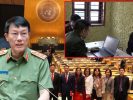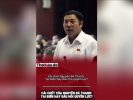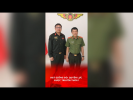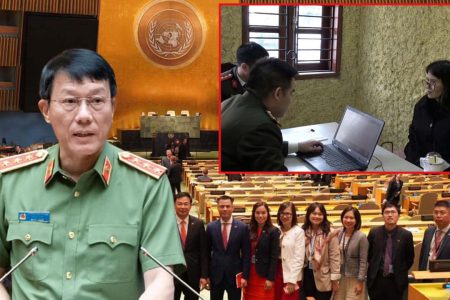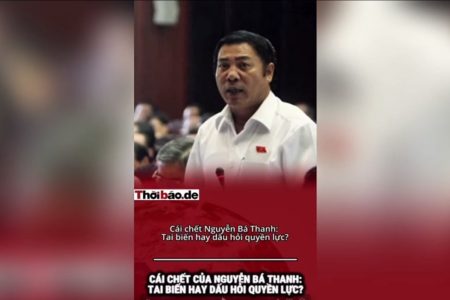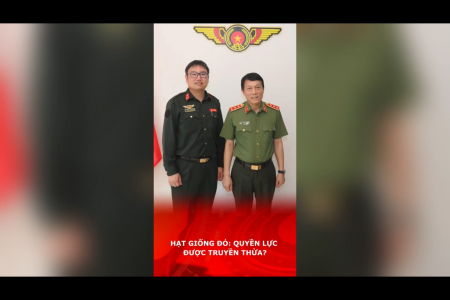The Chinese Communist Party (CCP) has opened a new front in its long and ambitious battle to shape global public opinion: the West’s social media.
Liu Xiaoming, a former Chinese ambassador to the UK, is now one of the CCP’s most successful „warriors“ on this burgeoning online battlefield. Liu Xiaoming joined Twitter in October 2019 – a time when the number of Chinese diplomats using Twitter and Facebook, both platforms banned in China, was increasing.
Since then, Liu Xiaoming has gradually increased the influence of this public account, with more than 119,000 followers as he built himself into a sharp new Chinese „Wolf Warrior“ diplomat.
Many posts by this diplomat, now China’s Special Envoy for Korean Peninsula Affairs, include principled and tough statements in response to the West’s anti-Chinese bias and sharply attack those who do not share his option. His posts were shared by 43,000 others in the period between June 2020 and February 2021.
However, the support for Liu Xiaoming and many of his colleagues on Twitter is actually pre-programmed.

The Associated Press and Oxford University’s Oxford Internet Institute conducted a seven-month investigation and found that China’s „rising“ on Twitter was backed by an „army“ of a wide range of Internet users. Fake accounts have retweeted tens of thousands of times statements by Chinese diplomats and state media – a covert propaganda campaign that can reach hundreds of millions of people – and often do not reveal the truth fact that the content was “green-lighted” by the government.
Investigations by the AP and the institute show that, in fact, China’s Twitter activities propagate central government messages to the public both at home and abroad, with foreign diplomats compiles, edits, and amplifies content from the Ministry of Foreign Affairs as well as from state media. Zhao Alexandre Huang, working at Gustave Eiffel University (France), analyzed social media posts about the main points in the US-China trade dispute, indicating that the content was first posted on the Weibo account of the Chinese Foreign Ministry, being edited and subsequently broadcast around the world by Chinese diplomats via Twitter. „The Ministry of Foreign Affairs uses Weibo as a central information ‚kitchen‚,“ he said.
The shift to „attacking“ Western social networks comes as China promotes war for influence both at home and abroad on the Internet platform, which President Xi Jinping called the main battleground for political ideas.
This is part of the „information war“ that Beijing is waging, not only to attack the Western world but also to target all audiences that China wants to propagate. In 2020, Beijing launched many campaigns to attack Taiwan’s elections. Experts also predict that Beijing will launch campaigns to help pro-Beijing groups win the upcoming 2022 elections.
US military reacts
Recently, the US military decided to set up a task force to control China’s influence and information campaigns.
At a recent meeting of the US House of Representatives Armed Services Committee, General Richard Clarke – Commander of Special Operations Command – reported on the military’s progress in creating a task force for the use of war information against China. According to him, the US needs to fight the disinformation spread by Beijing. This also applies to the situation in the South China Sea and the Taiwan issue. He said the task force would work with „like-minded partners“ in the region. Mr. Clarke said, „Working closely with these partners ensures that our adversaries who compete with us are not free to act, to discern what is true and what is not, and continuing to emphasize that, along with using our intelligence communities, is very important.”
At an earlier meeting of the House Armed Services Committee, acting Assistant Secretary of Defense Christopher Maier said that the US military will step up its fight against propaganda, disinformation, and fabrication, protecting defend forces and disrupt enemy influence capabilities. He said: „The adversary’s use of fake information, disinformation, and propaganda campaigns is one of the biggest challenges facing the US today, not just the Department of Defense. By flooding the information environment with intentional and manipulated information, which is mostly fact-based but with complex deceptive elements that can cause influence and threaten our interests.“
Malcolm Davis, a veteran analyst of defense strategy and military capabilities at the Australian Strategic Policy Institute, said the creation of the task force reflected US concerns about the Chinese media and the country’s information campaigns to influence public opinion. „The information war will heat up, as part of China’s efforts to weaken the resolve of the US and its allies, especially regarding Taiwan and the South China Sea, If the US does not respond, the right to take the initiative will fall into the hands of China, giving it a much stronger position to shape the battlespace.“ The analyst also added that the US will highlight China’s strategies, in both traditional media channels and social media, propagating a different version of the events that Beijing is propagating. He said, „So it’s part intelligence gathering, part communication campaigns on the US side, identifying where China’s information strategy is focused and making recommendations for countermeasures to lessen the impact of that strategy.“
Michael Raska, working for the S.Ratjaratnam School of International Studies at Singapore’s Nanyang University, said that the decision to set up a new US task force came at a time when China was projecting power and influence in many regions, such as Taiwan. He said the US is rethinking the use of a combination of military and non-military tools in war – including cyber and information warfare in many fields – to influence the enemy’s strategic choices. „The use of means in cyberspace as a tool of war is increasingly being reflected in Taiwan as well as the ongoing territorial disputes in the South China Sea,“ he said.
China’s Information War Targets Vietnam
Although the term information warfare appeared relatively recently, the use of information to distort the enemy’s internal situation in a negative direction and domestically in a positive direction has been used for a long time by countries. Everyone is aware of the information warfare methods used by the Nazi Propaganda Minister Goebbels.
Information warfare is not new to China either. In ancient Chinese history, people often mention the story „Sang Sam kills people.“ The content of this story is the repetition of a message that will greatly affect the listener’s psychology. Therefore, since the Communist Party of China came to power, Beijing has paid great attention to propaganda aimed at rival countries, of which Vietnam is a typical case.
The Vietnamese people are no stranger to information warfare from China. China’s information warfare against Vietnam is varied. During the period of tension between Vietnam and China from 1979 to 1990, Chinese radio stations broadcasting in Vietnamese always released statements cursing the Vietnamese government. And yet, so far, in textbooks in China, it has always been shown that Vietnam is a land of China, just separated and autonomous not long ago, sooner or later this „prodigal son“ will return with “motherland China.”
Chinese historians always explain the reason for the border war in 1979, when China actively attacked a socialist „junior“ country and also its close neighbor, because Vietnam was preparing to „invade“ the Nansha Islands (that is, Spratlys or the Truong Sa of Vietnam), so China had to take action for „self-defense.“ However, even though that argument is blunt, it is repeated over and over again, which also affects the psychology of Vietnamese people, especially Vietnamese officials.
That leads to the reactions from the Vietnamese side to the information war from China, so it is very passive and must be said to be „suffering“ to let it go.
A professor, director of the Vietnam Institute of History, said that the Chinese Embassy listed all the contents in the textbooks in Vietnam that mentioned the border war that China actively attacked in 1979 to sent to the Vietnamese government and asserted that these contents were aimed at defaming China and damaging Vietnam-China relations. The Chinese Embassy also asked Vietnamese historians to „delete“ such contents.
A former director of the Information and Documentation Department of the National Border Commission, the Ministry of Foreign Affairs of Vietnam, in a conference on the South China Sea in 2011 commented that the information picture about Vietnam’s seas and islands is like a piece of a white paper, the Vietnamese side left it blank, so the Chinese side wanted to write whatever they wanted. That also partly speaks to the reality of information warfare that China is targeting and the weak response from Vietnam.
The entire huge propaganda apparatus of Vietnam, including many commentators from „high-level“ to „low-level„, focused on praising the Party and Government and attacking critics. As for China, the „biggest“ enemy of Vietnam, it seems that this group of public opinion shapers is indifferent, considering it to be someone else’s problem.
Perhaps, the Vietnamese government needs to identify and study carefully information warfare from China and its types to be able to have campaigns to counter false information from China, especially on the island issue.
Thoibao.de (Translated)

















